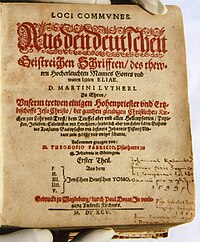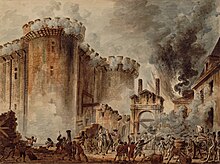Response of Change
الدرس المستفاد من التاريخ هو أن الناس دائما ما تستخدم من قبل الطبقات العليا في حالة من الثورة أو حركات المقاومة ولكن يسمح أبدا للاستفادة من انتقال السلطة التي تحدث نتيجة لتضحياتهم
"انها لا تعني أن يكون بالنظر إلى يد الظالمين لاستغلال الجماهير من خلال نهب والسلب؟ لا ، ما سبق ثلاثة أمثلة من التاريخ تشير إلى أن الحركة كانت بداية نهاية القمع. لقد استغرق الأمر وقتا أطول لثمار الثورة للوصول الى الجماهير ولكن فعل ذلك. ننظر في المانيا وانكلترا وفرنسا الآن ، والناس هم يتمتعون بالحرية لأسلافهم التي عملت بجد. هذا هو عصر الاتصال الجماهيري وشبكة الإنترنت ، في قرية عالمية ، ووضع العلامات من الصعب والصعب على الظالمين على مواصلة القتل الجماعي. ولكن إذا كان شيء مجانا.... الحرية لها ثمن.... قيمته بأي ثمن.... ومن هنا يجب على جميع الشعوب المضطهدة مواصلة مقاومة الظلم
History is a continuous process where periods of calm stability are disrupted by phases of violent or silent change. In case of a radical change or revolution, the common people fully take part and sacrifice for a cause, believing that it will change their condition. If the movement for change fails, these people pay the price. They are crushed, slaughtered and massacred by the ruling classes. If the movement succeeds, the leadership excludes the common people and appropriates the benefits for their own class. To prove our argument, we will discuss the Reformation movement of Luther, Cromwell’s movement against the English monarchy and the French Revolution.
When Martin Luther challenged the Catholic Church in 1517, he was asked to appear before the Imperial Diet and explain his position. Luther travelled from Wittenberg to Worm to attend the Diet and was surprised to find crowds of people gathered on both sides of the road to cheer him and express their support. Perhaps when Luther refused to recant his religious views at the Diet, the support of the people gave him courage and confidence. As most of the German princes also wanted to get rid of the Catholic Church and its hold over them, they also supported Luther. The Duke of Saxony protected him and hid him in a castle in defiance of Papal authority.
While Luther was in hiding he received news that the people of the city of Wittenberg had revolted against the Catholic Church. They smashed the statues and disfigured the paintings in the churches. Luther was horrified and immediately went to the city to control the riots.
Another result of his religious views was the peasant rebellion in Germany which was led by the followers of Luther. When Luther argued that the authority of the Bible was above that of the Pope, the peasants, on this basis, demanded equality and justice. It was such a widespread movement that it shattered the German ruling class.
Luther, at this stage, decided to side with the princes rather than the peasants. His decision was to convert the princes and not the people. He advised them to crush the rebellion with an iron hand. He condemned the peasants as hooligans and rabble rousers. The rebellion was quelled and Luther’s Reformation became the ‘Magisterial Reformation’. Three decades later, after the treaty of Westphalia, 1642, it was decided that the religion of the prince would be the religion of his subjects. The movement re-established the authority of the princes. The aspirations of the people failed to change their condition.
The war between the English king and the Parliament in the 17th century was a unique episode in history. That was the period when the roots of monarchy were very deep and to rebel against him was an act of treason. However, in this case, the parliament won and the king became a traitor. He was tried on the charges of treason and executed.
It was a bold step to deny the old historic tradition and set up, instead of monarchy, a commonwealth. This encouraged other groups to change society according to their views. Two groups emerged who demanded a transformation of the system. The Levellers demanded right of vote, annual election for parliament, religious toleration, end of parliamentary corruption and judicial reforms. The Diggers wanted to abolish private property. The demands of both groups reflected the concern of the lower classes regarding the prevailing conditions and their desire to take advantage of the change.
Cromwell, who was the leader of the gentry class, was keen to keep the wheel of change in his control and not to go beyond the interests of his class. He and his party were radical as far as it was in the interest of their class. When other groups wanted to continue the process of change, it was halted with full force. He crushed both Levellers and Diggers.
On 14 July, 1789, the people of Paris revolted against the king and demolished the fort of Bastille to show their power as well as anger. The bourgeois class was at the forefront of this revolution. The National Assembly passed the Declaration of Rights of man which, along with other clauses, gave guarantee of private property.
When the peasants revolted in the countryside and attacked the chateaus of the landlords and burned the documents which were against them, the Revolutionary government sent forces to crush these rebellions. Thousands of peasants were slaughtered to silence their voice. The bourgeois class wanted to keep the revolution under its control and called a halt to it when it fulfilled their interest.
The lesson of history is that people are always used by upper classes in case of revolution or resistance movements but never allowed to benefit from the shift of power that takes place as a result of their sacrifices.
"Past present: Response of change" By Mubarak Ali; http://www.dawn.com/2011/04/17/past-present-response-of-change.html
Comments:
Comments:
Does it imply that the oppressors be given free hand to indefinitely exploit the masses through loot and plunder? No, the above three examples from history indicate that the movement were beginning of end of oppression. It took more time for the fruits of revolution to reach the masses but it did. Look at Germany, England and France now, their people are enjoying the freedom for which their ancestors worked hard.
This is era of mass communication and internet, world is a global village, marking it difficult and harder for oppressors to continue with mass murders. However nothing if free.... freedom has its price .... its worth any cost .... Hence all oppressed people must continue to resist oppression... watch out, be aware of Fifth Columnists among your ranks, do not let any one steal fruits of your struggle....
This is era of mass communication and internet, world is a global village, marking it difficult and harder for oppressors to continue with mass murders. However nothing if free.... freedom has its price .... its worth any cost .... Hence all oppressed people must continue to resist oppression... watch out, be aware of Fifth Columnists among your ranks, do not let any one steal fruits of your struggle....
Related Links:
Here is some evidence that may enable us to observe the hidden hand of this deity of deception in the recent magical “revolutions” that took place in Tunisia and Egypt and still in progress in several more Arab states. ...
Like the European revolutions of 1848 and the uprising against Stalinism in 1989, the Arabrevolt has rejected fear. An insurrection of suppressed ideas, hope and solidarity has begun. In the United States, where 45 per cent of young ...
Thanks to the revolutions, we now have been forced to rethink whether the categories "Muslim" and "Arab" have any meaning at all. It is time to approach three hundred millionArabic speaking people and more than one billion people ...
... the solutions to the Arab world's ills are remarkably similar. The political, economic and social suffocation that the people of Tunisia and Egypt have endured, before popularrevolutions swept the countries' dictators from power, ...
Nevertheless, a narrative on what has happened in the Arab world has emerged and has become the framework for thinking about the region. The narrative says that the region is being swept by democratic revolutions (in the Western sense) ...
These are countries which had military revolutions and today are experiencing civilrevolutions. Like Tunisia, but in a worse fashion, Libya has invested very little in social capital or civic capacity building. ... Dr Larbi Sadiki is a Senior Lecturer in Middle East Politics at the University of Exeter, and author of Arab Democratisation: Elections without Democracy (Oxford University Press, 2009) and The Search for Arab Democracy: Discourses and Counter-Discourses ...
We are in the middle of a political earthquake in the Arab world and the ground has still not stopped shaking. To make predictions when events are so fluid is risky, but there is no doubt that the uprising in Egypt -- however it ends -- will have a dramatic impact across the ... None of the parties at the demonstration called for the kind of revolutions that happened in Tunisia and Egypt to occur in Jordan, and there is no reason to believe such developments are imminent. ...
Open Letter to Field Marshal Mohamed Hussein Tantawi, New Ruler of Egypt. Also Applicable to All kings and dictators. رسالة مفتوحة إلى المشير حسين طنطاوي محمد ، الحاكم الجديد لمصر. كما ينطبق على جميع الملوك والحكام المستبدين ...
This voluntary forum is open to people of all faiths and atheists. السعي لإحلال السلام الداخلي والخارجي للبشرية من خلال رؤية المفاهيمي لملة إبراهيم الإسلام والمسيحية واليهودية في ضوء الكتاب المقدس في بيئات انتشارا. ...
This voluntary forum is open to people of all faiths and atheists. السعي لإحلال السلام الداخلي والخارجي للبشرية من خلال رؤية المفاهيمي لملة إبراهيم الإسلام والمسيحية واليهودية في ضوء الكتاب المقدس في بيئات انتشارا. ...
سلام ، تحية للسلام. Please have mercy on your country and people who have tolerated your family rule for years. Time has changed, free your people don't behave like Saddam Hussain who is responsible for destruction of his country. ...



